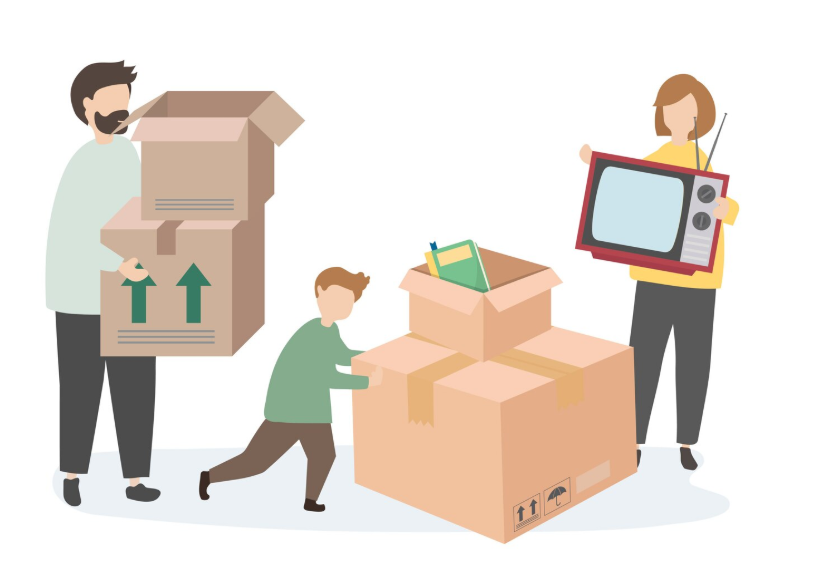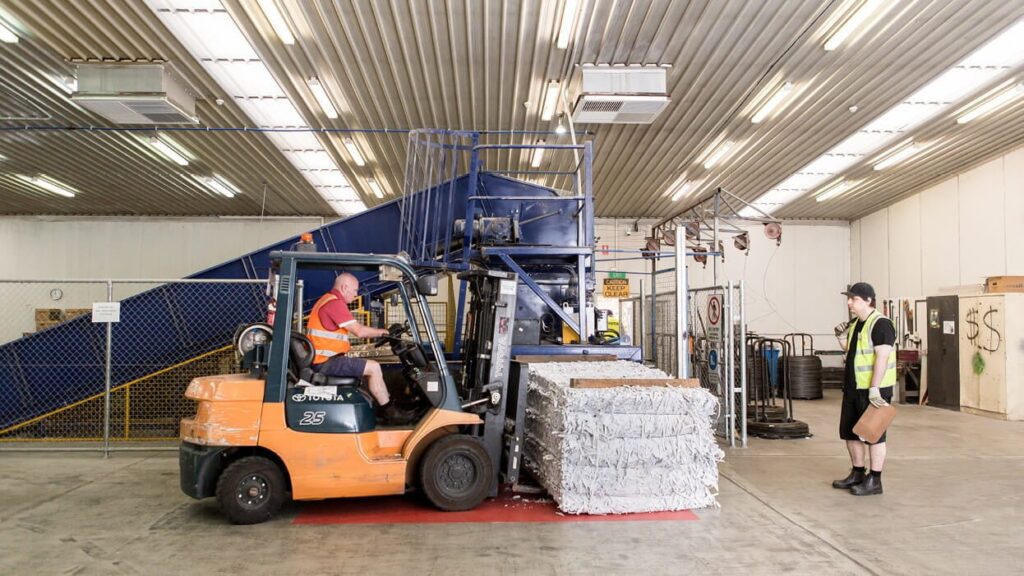Introduction to Business Shredding Needs
As businesses scale, so too do their data responsibilities. From sensitive financial records to outdated employee files, confidential material must be handled with care — not just for privacy, but for legal compliance. For medium and large enterprises, in-house shredding quickly becomes inefficient, insecure, or simply unscalable.
That’s where a professional shredding service in UK becomes essential. These providers ensure secure, documented, and efficient destruction of everything from confidential paperwork to outdated hard drives, guaranteeing that sensitive data is disposed of thoroughly and responsibly. However, not all shredding services offer the same level of reliability — especially when handling large volumes or complying with strict data protection regulations.
In this guide, we’ll explore the types of shredding available, the features that matter most for bigger businesses, and which providers stand out. Whether you’re managing monthly archive clear-outs or daily document disposal across multiple offices, there’s a solution that fits.
Why Shredding Services Are Important for Medium and Large Businesses
For SMEs, a small shredder in the corner might suffice. But for medium and large organisations, the risks and requirements grow exponentially. Client contracts, payroll data, intellectual property, and internal reports — all of it represents potential liabilities if not disposed of correctly.
Outsourcing to a certified shredding partner helps mitigate that risk. It ensures destruction is documented, traceable, and compliant with relevant data laws. It also frees up valuable in-house resources, allowing staff to focus on core business activities rather than waste management.
Moreover, high-volume shredding often comes with logistical complexity. National or multi-site companies need consistency across locations, real-time tracking, and tailored scheduling — all of which professional providers can offer.
In short, for larger firms, professional shredding is not just a convenience — it’s a strategic necessity.
Types of Shredding Services Available

Document Shredding
Still the most common, this involves secure destruction of paper records. Providers use industrial-grade equipment to shred material into unrecognisable fragments — often far beyond the capabilities of consumer-grade machines. Some services offer locked bins for on-site collection; others arrive for scheduled pickups.
Hard Drive & Media Destruction
For IT departments and data-heavy sectors, the physical destruction of hard drives, USBs, CDs, and tapes is essential to ensure no recoverable data remains — even when advanced forensic tools are used. Whether for businesses or individuals, Residential Hard Drive Shredding Services offer secure options like crushing, shredding, or degaussing, often accompanied by detailed chain of custody logs for each item destroyed.
Uniform and Product Destruction
This lesser-known but vital service ensures branded items — uniforms, ID badges, expired product packaging — don’t fall into the wrong hands. Particularly important for retail, hospitality, and security firms, it prevents misuse, counterfeiting, or reputational damage.
Scheduled vs. One-Time Purge Services
Some businesses need regular pickups (daily, weekly, monthly), while others prefer ad hoc purges — for instance, during relocations or file archive clean-outs. Most leading providers offer both models, scaling to match internal processes and compliance deadlines.
Key Features to Look for in a Shredding Service Provider

Volume Handling Capacity
For medium and large businesses, scale is everything. A shredding provider must be equipped to handle large quantities of materials efficiently — whether that’s hundreds of kilos of paper per week or multiple pallets of outdated electronics. Look for services that offer bulk destruction capabilities, scalable scheduling, and fleet capacity to match multi-site operations.
Chain of Custody and Audit Trails
Reputable shredding providers maintain a strict chain of custody from the moment your materials leave the building to final destruction. This includes secure transport, barcoded bins, and detailed logs. For businesses subject to audits, having a documented trail is non-negotiable — it provides transparency and protects against liability.
Regulatory Compliance (GDPR)
Whether you’re handling employee records, patient files, or customer data, compliance with data protection regulations is critical. In the UK and EU, GDPR mandates responsible data destruction. In sectors like healthcare or finance, you may also face additional compliance layers. The best shredding companies understand these regulations and build their services around them.
On-Site vs. Off-Site Options
Some organisations prefer an on site shredding service in UK, where confidential materials are destroyed right at their premises using a mobile shredding truck. Others opt for off-site shredding, where documents and data are securely transported to a dedicated facility for processing. Each method has its pros and cons, so it’s important to choose a provider that offers both options — along with the flexibility to adjust services based on your evolving needs.
Certificate of Destruction
After each service, you should receive a Certificate of Destruction. This document is your proof that materials were securely and permanently destroyed in line with legal requirements. It’s also useful for internal records, audits, and insurance claims.
On-Site vs. Off-Site Shredding: Which Is Better?

Pros and Cons of On-Site Shredding
On-site shredding involves a mobile unit arriving at your location to destroy documents or materials while you observe. This model offers immediate assurance — you see the destruction take place in real time. It’s ideal for organisations with high-security demands, especially those in finance, law, or healthcare.
Shredding Services Advantages:
- Witnessed destruction
- Reduced risk of materials being lost in transit
- Immediate issuance of Certificate of Destruction
Shredding Services Disadvantages:
- May cause minor disruption on-site
- Potentially more expensive due to logistics
- Not always suitable for very large volumes
Pros and Cons of Off-Site Shredding
Off-site shredding involves secure collection of your materials, which are then transported to a high-capacity facility for processing. It’s best for bulk jobs or organisations with frequent, large-scale shredding needs across multiple locations.
Advantages:
- Typically more cost-effective
- Higher volume capacity
- Minimal on-site disruption
Disadvantages:
- Slight delay in destruction
- Requires robust chain-of-custody documentation
- Some clients may feel uneasy not witnessing the process
Best Use Cases for Each Option
Choose on-site shredding for high-sensitivity documents, regulatory audits, or executive-level disposal. Opt for off-site shredding for archive clear-outs, regular contract collections, or multi-department paper flow. Many large providers offer a hybrid model — giving you the best of both.
How to Choose the Right Shredding Partner

The right partner isn’t just the biggest brand — it’s the one that aligns with your operational needs, risk profile, and internal culture.
Start by evaluating your volume and frequency. Do you need weekly collections or quarterly archive purges? Then assess your compliance obligations — are you governed by industry-specific rules or standard data protection law?
Request to review:
- Their chain-of-custody procedures
- Their certifications (e.g. ISO 9001 with BS EN 15713)
- Their employee screening policies
Ask for references. A good provider will be happy to connect you with clients in a similar industry or size. Also review how their pricing scales, especially for multi-site coverage.
Finally, test the responsiveness of their support team. When a compliance deadline or incident arises, you’ll want a shredding partner who doesn’t go silent.
Ensuring Data Security and Compliance with Shredding
For medium and large businesses, data breaches don’t just hurt your reputation — they can result in fines, lawsuits, and permanent loss of client trust. That’s why professional shredding is as much about risk mitigation as it is about waste disposal.
A reputable shredding partner should offer:
- Locked containers for day-to-day collection
- Background-checked staff with secure ID and uniform
- Certificates of Destruction with batch IDs and cross-reference capability
- Secure disposal methods in accordance with BS EN 15713 and GDPR
For businesses in healthcare, finance, or legal sectors, it’s also critical that shredding aligns with industry-specific regulations. Choose a provider familiar with your compliance environment to reduce admin burden and improve audit readiness.
Benefits of Outsourcing Shredding for Larger Organisations
In-house shredding often seems more affordable — until you factor in the costs of machinery, maintenance, staff hours, and the risks of non-compliance. Outsourcing, by contrast, offers scalability, documentation, and peace of mind.
Top advantages include:
- Time savings for internal teams
- Enhanced information security
- Guaranteed compliance and audit support
- Reduced operational costs for large-scale jobs
- Clear proof of compliance for legal or regulatory inquiries
Outsourcing also allows for more predictable budgeting, especially when providers offer fixed pricing tiers and bundled services across multiple sites. For growing businesses, it’s a strategic move — not just a logistical one.
Final Thoughts: Picking the Best Shredding Solution
Choosing the right shredding service for your medium or large business isn’t just about ticking a box — it’s about protecting your data, reputation, and compliance standing.
Start by assessing your internal needs: document volume, storage bottlenecks, legal obligations. Then match those to a provider who can handle your scale without compromising security or flexibility.
Look for credentials, chain-of-custody protocols, and customer support that doesn’t disappear after the first invoice. Whether you need on-site shredding every week or an annual data purge across five locations, the right partner will work around your business — not the other way round.
In today’s data-driven environment, shredding isn’t just a back-office task. It’s a frontline defence. Choose wisely, and it becomes a quiet powerhouse in your wider compliance and risk strategy.

